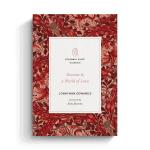This post is part of a series walking through the second volume of Abraham Kuyper’s Common Grace.
Dipping back into ‘the problem’ (that the world is better than the doctrine of original sin says it should be, and that Christians are worse than the doctrine of regeneration/sanctification say we should be), Kuyper in this chapter tackles the ‘Anabaptist Solution’ to the issue.
For these believers, the world is unclean to the point where even holding political offices at all must be avoided. This is simply Roman Catholic dualism by another name (and shared with the Lutherans). We see an example of this in their doctrine of exorcism. The default is that the world is owned by the demonic unless exorcised by either the super-holy or the duly ordained office-holders. This idea then gets tied to infant baptism (not for the Anabaptists, obviously), and the church thus becomes the sole source of good in the world. The baptizing priest is the means of the Spirit’s coming into the world. Finally, the distinction is made between consecrated and unconsecrated soil. This last is a picture of the whole world, which must be exorcised and consecrated to be transferred to Christ.
And before getting to Kuyper’s response to this view, I do have to insert the note here that this is more a Roman Catholic view than an Anabaptist view. Which is not to say it’s completely out of harmony with what some Anabaptists believe, just that its emphasis is far more flavored by Rome than it is by Anabaptist theology.
The Reformed oppose this dualism, while admitting the deeper spiritual truth at work in this view of the world. We certainly see that admission even in he four components of the first question of the Heidelberg Catechism. But the transfer from sin/Satan to Christ comes by grace alone, rather than by ritual or ceremony. So ‘possession’ in the Gospels is something different than the “sinners being under the curse.” (80-81) Salvation and exorcism are different things.
But, we might ask, doesn’t the ritualism and ceremonial cleanliness of the Old Testament support the Roman Catholic/Anabaptist view? Shouldn’t we have related practices?
This comes down to whether these Old Testament actions are to be understood as “instrumental or symbolic.” (82) With Paul, we say they were symbolic foreshadowings. Yes, cleanliness was involved as well, but not a real religious action.
And here another interjection is necessary, because at this point Kuyper goes on to talk about current (i.e. late 19th/early 20th century) Jewish cleanliness. There is an footnote that points out that the cleanliness in question was more a function of poverty than race, as poor Dutch people themselves demonstrated in Kuyper’s day. I think this footnote is probably true, but also perhaps working too hard to redeem Kuyper. It’s probably better just to say that he shared the prejudices of his day and was wrong to do so.
Back on point, these Old Testament rituals were symbolic, and so “prophetic, explanatory, or commemorative,” but all pointing to the coming Christ. (83-84) Now the new reality is here and the shadows must pass away, and only those instituted by Christ (baptism and the Lord’s Supper) remain–though of course we have cultural rituals which we may observe as well (closing our eyes and folding our hands for prayer, for example).
Dr. Coyle Neal is co-host of the City of Man Podcast and an Associate Professor of Political Science at Southwest Baptist University in Bolivar, MO













